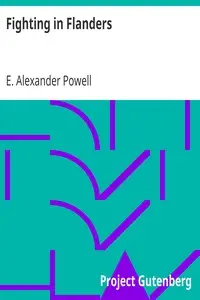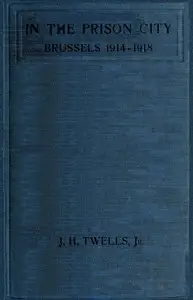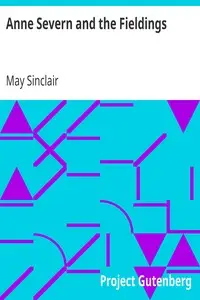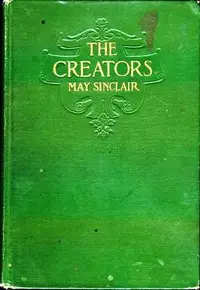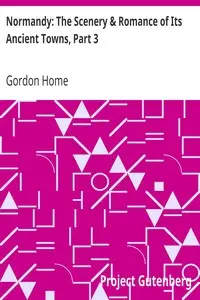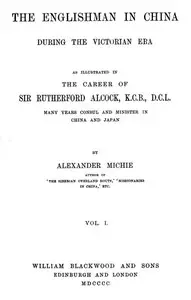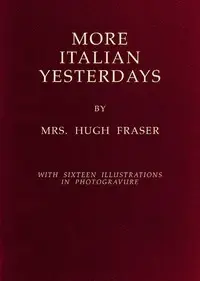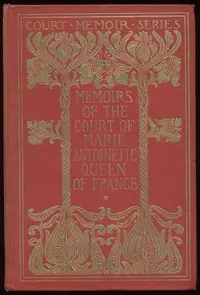"A Journal of Impressions in Belgium" by May Sinclair is a firsthand account taking place during World War I. This narrative recounts the author's journey and inner thoughts as she confronts the brutal realities of war while serving with a Field Ambulance Corps in Belgium. The book explores themes of responsibility, trepidation, and the contrast between beauty and devastation in a war-stricken region. As the journal starts, Sinclair shares her initial impressions upon arriving in Belgium shortly after the invasion. She describes the hectic beginnings of forming a volunteer ambulance team, showing a blend of humor and worry about the coming war. As the team gets to Ostend, Sinclair's observations highlight the Flemish countryside's beauty and her increasing anxiety about the looming conflict. Through a cast of varied characters, like the dedicated but sometimes overwhelmed team members, the journal presents Sinclair's developing insight into her purpose amidst the grim realities of wartime, mirroring her internal challenges and the intense situations ahead.
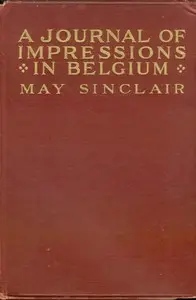
A Journal of Impressions in Belgium
By May Sinclair
Amidst the chaos of World War I, a volunteer ambulance corps confronts the harsh realities of war-torn Belgium, where beauty clashes with unimaginable horror.
Summary
About the AuthorMay Sinclair was the pseudonym of Mary Amelia St. Clair, a popular British writer who wrote about two dozen novels, short stories and poetry. She was an active suffragist, and member of the Woman Writers' Suffrage League. She once dressed up as a demure, rebel Jane Austen for a suffrage fundraising event. Sinclair was also a significant critic in the area of modernist poetry and prose, and she is attributed with first using the term 'stream of consciousness' in a literary context, when reviewing the first volumes of Dorothy Richardson's novel sequence Pilgrimage (1915–1967), in The Egoist, April 1918.
May Sinclair was the pseudonym of Mary Amelia St. Clair, a popular British writer who wrote about two dozen novels, short stories and poetry. She was an active suffragist, and member of the Woman Writers' Suffrage League. She once dressed up as a demure, rebel Jane Austen for a suffrage fundraising event. Sinclair was also a significant critic in the area of modernist poetry and prose, and she is attributed with first using the term 'stream of consciousness' in a literary context, when reviewing the first volumes of Dorothy Richardson's novel sequence Pilgrimage (1915–1967), in The Egoist, April 1918.




